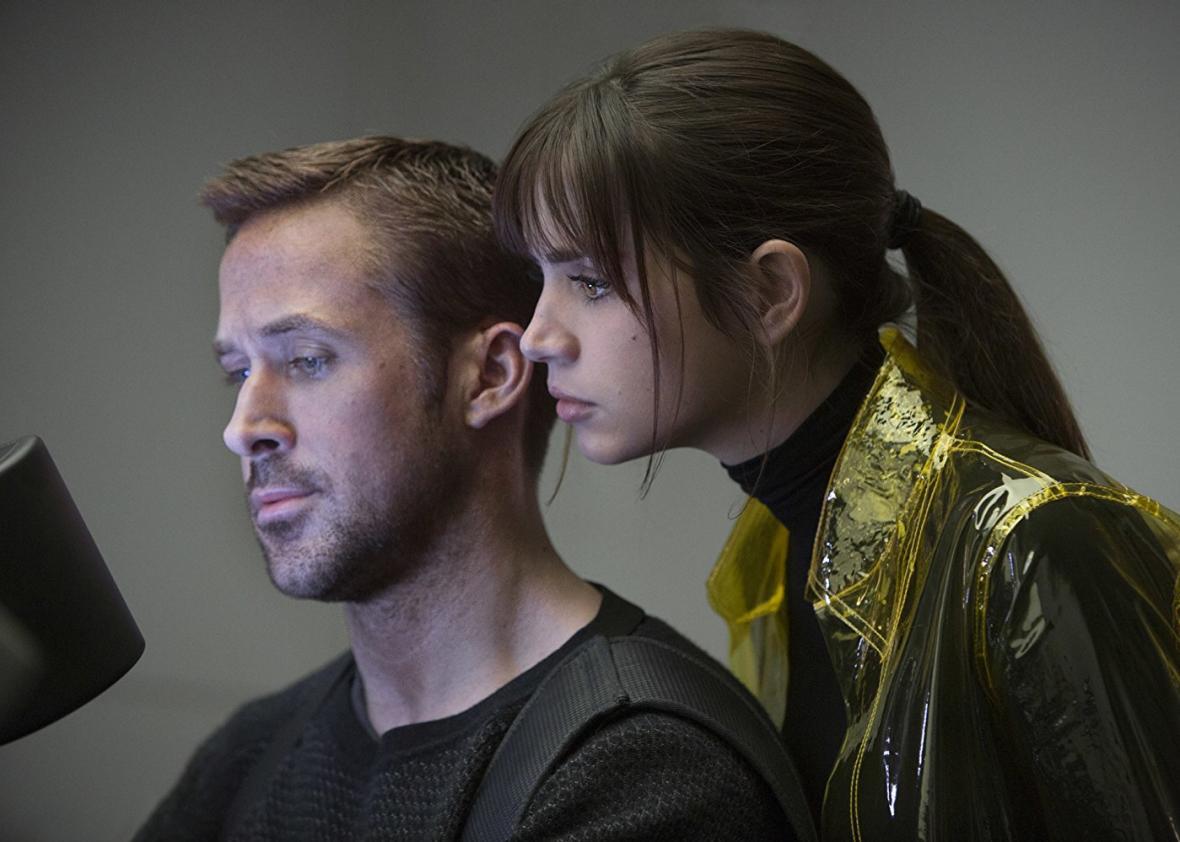Although it may seem like spoiler warnings have been with us forever, they’re a relatively modern phenomenon; much as one might yearn for a naïve viewing of Psycho, it wasn’t especially important to Alfred Hitchcock, who shot a six-minute trailer for the movie in which he personally described its plot in great detail. But in a era when even the tiniest aspects of a movie’s production are locked down and dribbled out as micronewslets—The Last Jedi’s End Credits Font, Revealed (EXCLUSIVE)—anything and everything can be considered a spoiler, right down to the bare act of saying what a movie’s about.
Until now, the record for spoiler micromanagement was held by Mad Men’s Matthew Weiner, who sent critics detailed notes about what to leave out of their advance reviews, including the year in which a new season of the show was set. But he’s getting a run for his money from Blade Runner 2049’s Denis Villeneuve, who has provided critics with an extensive list of taboo subjects. (Press who saw the film before its review embargo lifted last Friday were also asked to sign a nondisclosure agreement including a threat of legal action, although not all of them complied.) At the screening I attended, Villeneuve’s letter was read aloud, but a critic in Austin, Texas, tweeted out a hard copy, edited to avoid potential spoilers.
The redacted version of Villeneuve’s letter is nearly incomprehensible, which gives you an idea of how a review omitting all of the details might read. (Slate’s review, by Dana Stevens, abides by most of its precepts but gives away details contained in the first 10 minutes of the movie, which would ordinarily be considered more than fair game.) It’s common for movies to be screened for press with a boilerplate request to “preserve the movie’s surprises,” but Villeneuve’s points encompass not just Blade Runner’s twists but its premise.
A representative for Warner Bros. told IndieWire that distributing a physical copy of Villeneuve’s letter in Austin was “a mistake by one representative at the agency we work with in Texas … in the interest of just getting to the attendees before they left the theater,” and that it was meant as a guide for conversations publicists would have with individual critics rather than being intended for distribution en masse. But that’s not how the letter is framed, and while some of Villeneuve’s requests are reasonable, others, like the suggestion that critics not “single out” a specific role and only write, “We meet many striking characters along the way,” verge on dictating their reviews for them. (Adding insult to injury, it’s a bland, useless sentence that any conscientious editor would strike.)
Although studies indicate that spoilers dampen viewers’ enjoyment a lot less than one might think, the option to go in with a blank slate is one that ought to be preserved, at least for a reasonable spell. (Sorry, but if you’re complaining about people spoiling the end of The Good Place’s first season once the second has started, you’re going to the Bad Place.) But if you really don’t want to know anything about a movie beforehand, there’s a simple solution: Don’t read about it. The reviews will still be there when you get out.
Artists have a right to a say in how their work is presented to the public, but critics have a right to ignore their requests, and when those requests would render a review incapable of saying more than “It’s a movie about a guy who does stuff,” that right becomes more like a duty. Given that the trailers for Blade Runner 2049 give away much of what Villeneuve is asking critics to keep secret, it seems like he should be sending notes to Warner Bros.’s marketing department instead.
